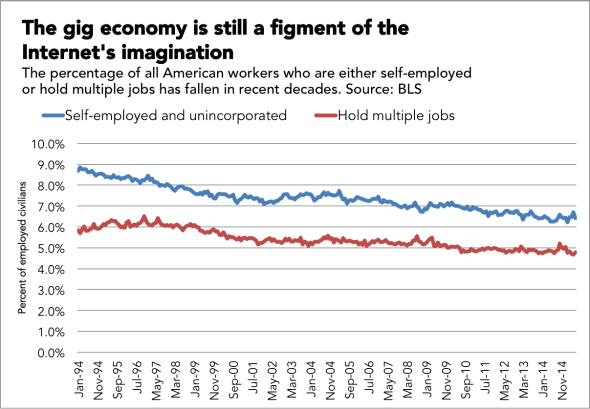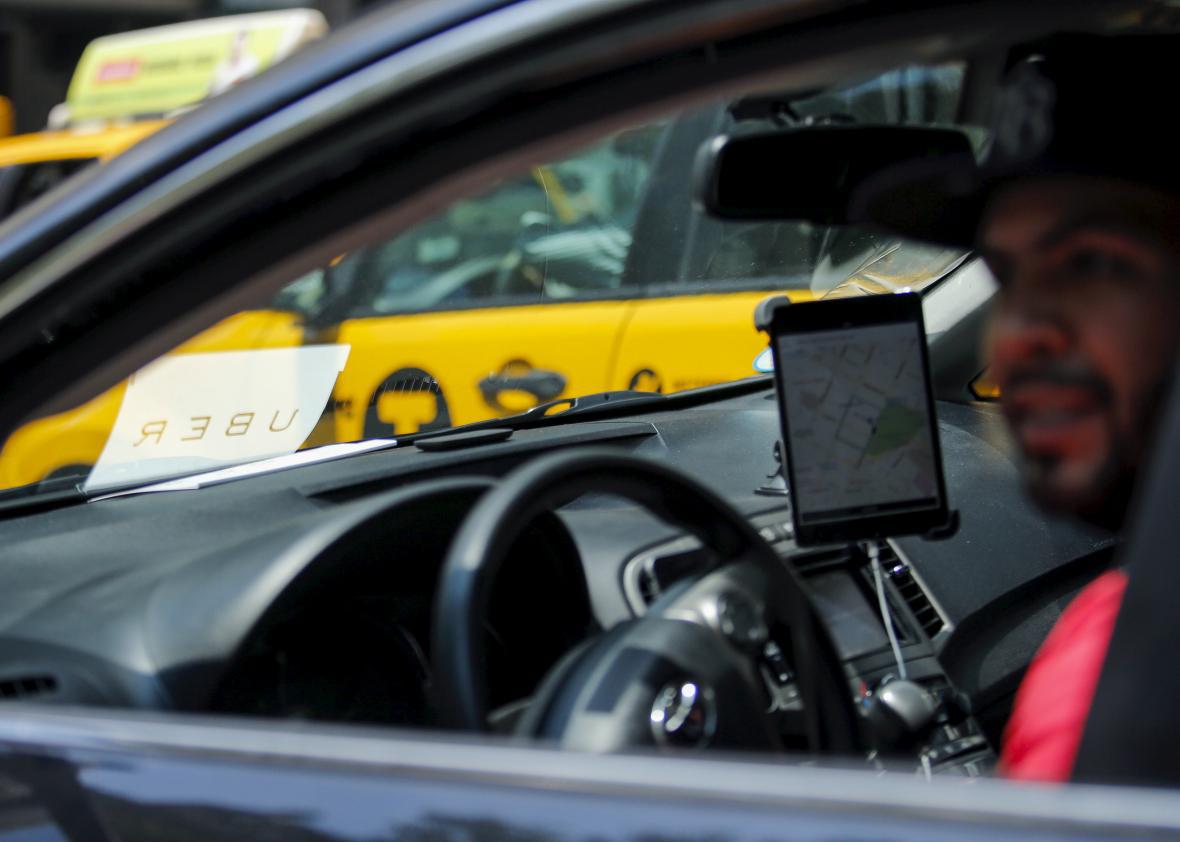It’s certainly possible that, one day, Silicon Valley darlings like Uber that rely on massive numbers of independent contractors who work as they please will revolutionize the American labor market such that we’ll all end up freelancers patching together a living working gig to gig. But that day hasn’t arrived yet—not even close. As Josh Zumbrun and Anna Louie Sussman recently noted in the Wall Street Journal, American workers are now less likely to be self-employed or hold multiple jobs than they were a decade ago, even in industries, like transportation, where you might already expect to see the Uber effect taking shape.

Jordan Weissmann, adapted from the Wall Street Journal
So, from all available evidence, the rise of the gig economy still seems to be a figment of the Internet’s imagination. That doesn’t make it any less important to discuss the issues raised by companies like Uber or Instacart, which have amassed massive valuations based on their novel labor models. But it does complicate the conversation. On the one hand, everyone can figure out why these startups might be a little problematic. They may only be a small piece of the economy now. But if they show the world that it’s more profitable to use workers on a contract basis, rather than hire them as full employees with all the benefits and protections that entails, other businesses are going imitate them. At that point, fewer Americans will enjoy the stability of a full-time job. On the other hand, it’s possible these companies will turn out to be a net plus as they expand the market for some services, like taxis, and make work more flexible.
Which will it be? At this point, these companies don’t make up enough of the economy for us to really know. Rather, it seems like they’re mostly offering an outlet to people who already would have been self-employed or holding down multiple gigs. It’s still entirely possible to look at the potential trade-offs and decide we need to start safeguarding against the possible downsides now, which is why the U.S. Department of Labor already seems to be looking to crack down on companies that abuse contract labor. But the harms that might emerge if massive swaths of the American labor force are reduced to contingent status are still basically hypothetical.
